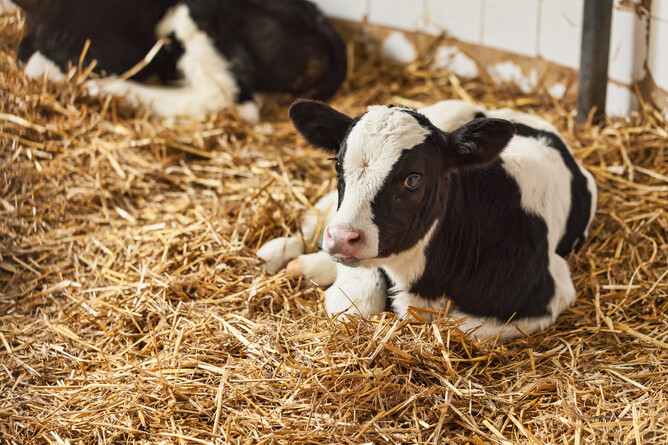Calving time is here, and the calf shed will be beginning to fill up.
As a great farmer – and we know you are – your colostrum management is ideal, with quality (>22 measured on a Brix refractometer), quantity (4-6 litres), quickly (fed within 12 hours of birth), quantified (regular assessment of IgG levels), and squeaky clean!
But out of the blue, you find you have calves with diarrhoea. The cause may be nutritional or infectious. Discovering what type you are dealing with can reduce cost, time, illness and potential deaths.
Nutritional diarrhoea is commonly caused by dietary and/or management factors, rather than infectious agents.
This could be because of:
Feeding methods
Overfeeding
Poor milk quality
Environmental stress
While often resolving on its own, providing electrolytes can help prevent dehydration. Calves with nutritional scours often look well in themselves, and their faeces are not overly smelly or bloody.
Infectious scours can present as watery or loose stools, which may be brown, grey, or yellow, and may contain blood and mucus. These calves often have a reduced appetite and appear more tired and weak compared to other calves.
Additional signs can include:
Reluctant to drink
Has a dirty backside
Looks depressed
Drooping ears
Sunken eyes
In severe cases of scours, the dehydration and electrolyte imbalances can cause death.
Giving electrolytes alongside milk as soon as scours are seen can assist regardless of infection type. However, best treatment can only be given when you know what is causing the issue.
We have an on-farm scours test available, called the WITNESS test. This can identify the five most common causes of infectious diarrhoea in calves: Cryptosporidium, Rotavirus, Coronavirus, E. Coli and Giardia.
We simply take a faecal sample and the WITNESS test can confirm what’s affecting that calf in just ten minutes. It’s easy and gives you results right then and there.
Get in touch if you need a scours test this spring or if you’d like us to visit your calf shed for a health check. Whether you’re concerned about an individual or an entire mob, we’re here to help you keep your calves happy and healthy.
We can also assess the IgG levels of your calves to confirm how your colostrum management is going.
Call us if you have any questions.

